
//What we do:
We are currently working with The Community Builders, a nonprofit real estate company with over 2000 affordable housing units across America. We are assisting them to analyze and understand their role in building climate resilience for their residents.
We are also working with Yeme, a UK-based architecture firm. We are setting up a sister organization for them – Yeme Tech, whose aim is to increase community engagement by understanding & intervening within the city fabric. One of the solutions for them is a platform to analyze 15 min neighborhoods based on individuals’ preferences.
We are also developing an application that brings together people in these communities by allowing them to easily host events in the post-pandemic world.
We do these using data at all scales alongside design & technology to create solutions and test the tradeoffs and impacts on the future of places.

We increase the accessibility for businesses and government agencies to see patterns that lead to insights for optimized, sustainable, and responsive decision-making. Urban design and planning require comprehension of multiple systems. We bridge the gap for focused companies to understand parameters outside their day-to-day businesses on how these parameters affect them and how they affect society.
We want to elaborate on this problem through an example. The Community Builders is a nonprofit company who wanted to tap into the federal funds set aside for climate adaptation projects. To do so, they had to justify whether their current and future developments have and will have a positive impact despite changing climate & social challenges. So we, as their consultants, created an in-depth analysis report that helped apply to these funds.
Our customers are entities affected by the same problem. Our knowledge and insights of multiple systems would allow us to create solutions intuitively. In a hierarchy, our customers would-be urban planners and architects tp NGOs and nonprofits to real estate developers and mobility planners.
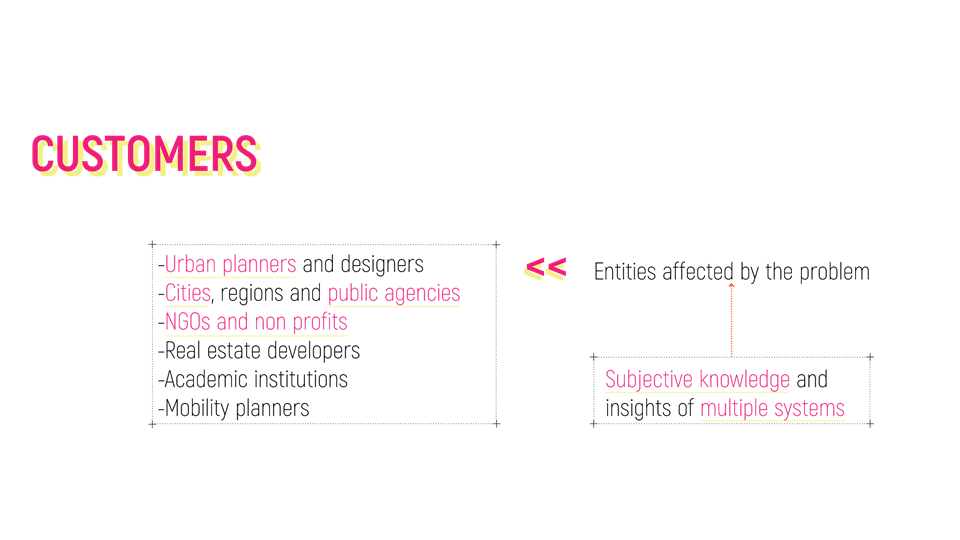
Our current validation comes from our clients who are urban planning agencies and nonprofits. For future validation from government agencies, we are developing urban planning and design framework and platforms to mitigate intangible imbalances in cities.
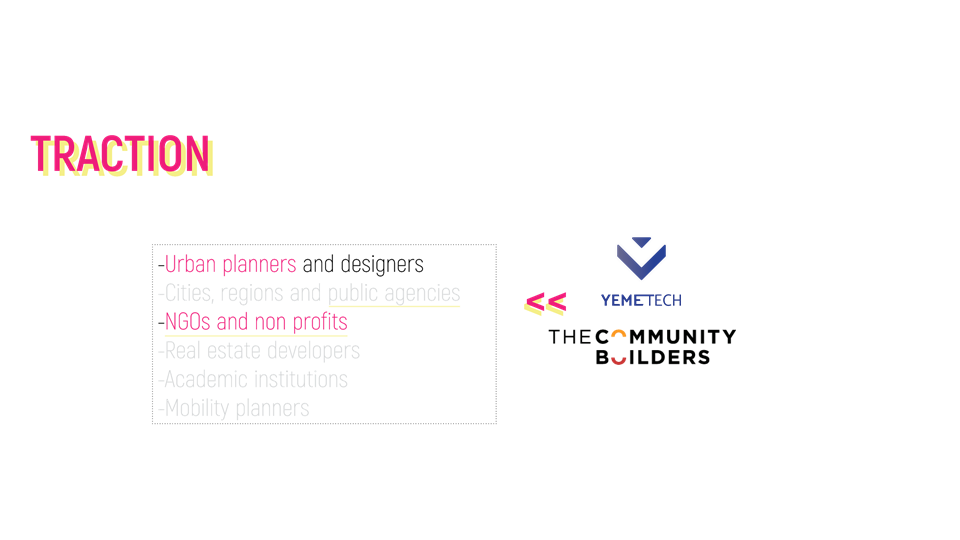
Through recode, we are developing a design framework that analyses socio-economic vulnerabilities and provides design solutions to mitigate these vulnerabilities.
Through dwell, we are developing a digital platform for inclusive housing by identifying core trends that cause and aggravate housing problems in cities.
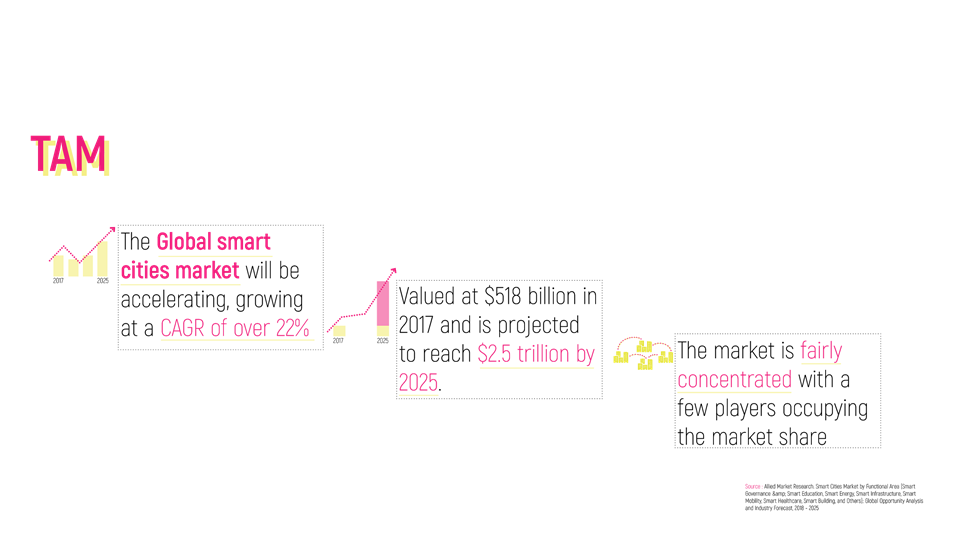
The global smart city market is growing at a compound annual rate of 22 % & is projected to reach $2.5 trillion by 2025.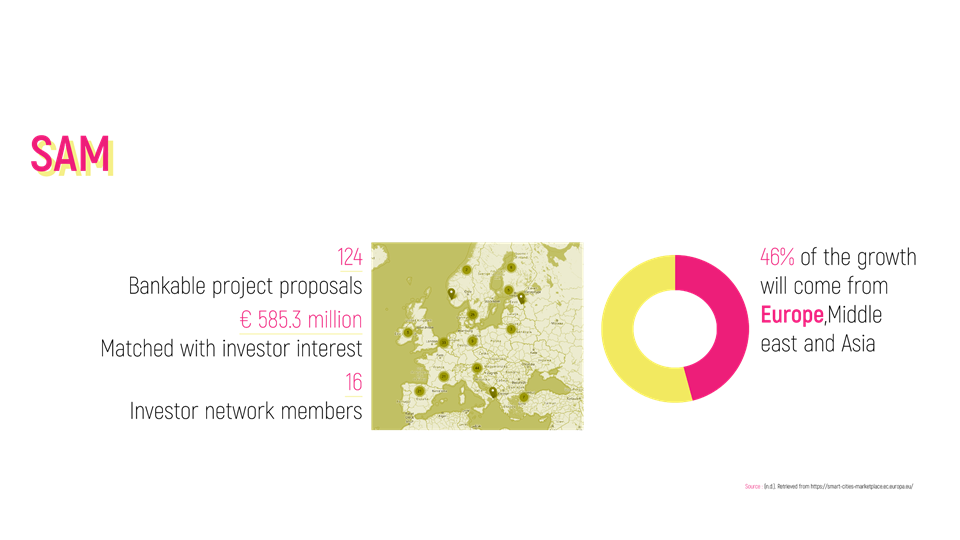
46% of this growth will come from Europe, Middle East, and Asia.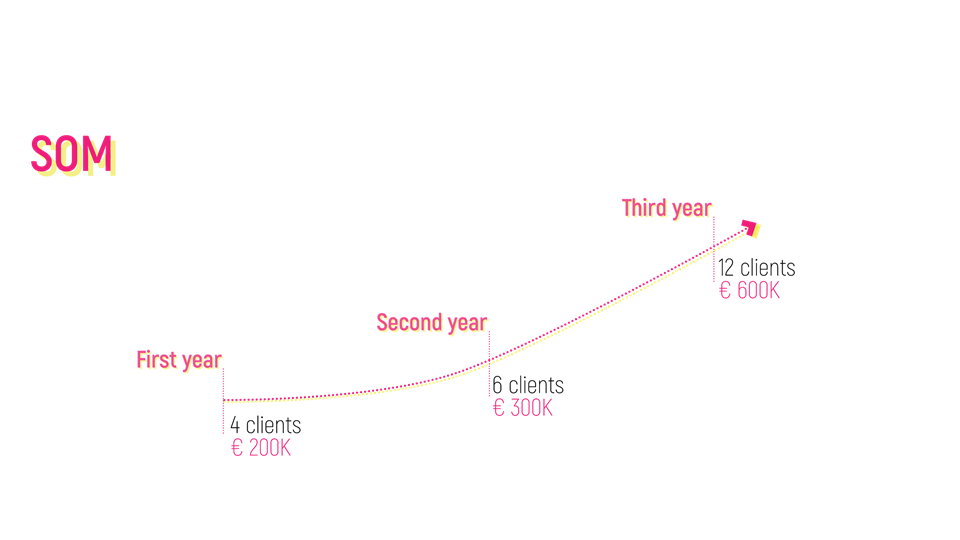
In the first year, based on client acquisition time & current resources, we aim to approach and work with 4 clients.
These will, in turn, generate a projected revenue of € 200K & by the end of the first year.
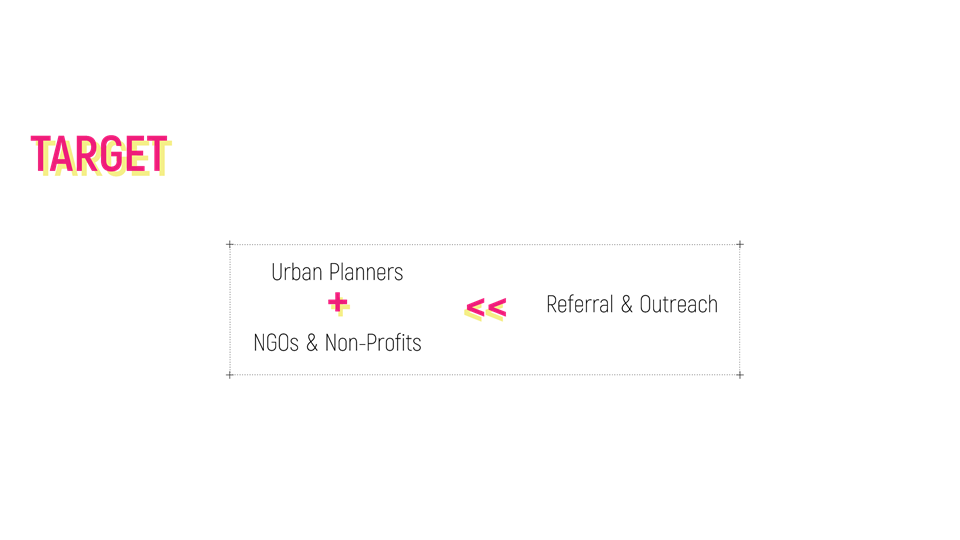
For the first couple of years, our target customers will be urban planners and NGOs, as our experience and knowledge so far would intuitively help cater to their requirements.
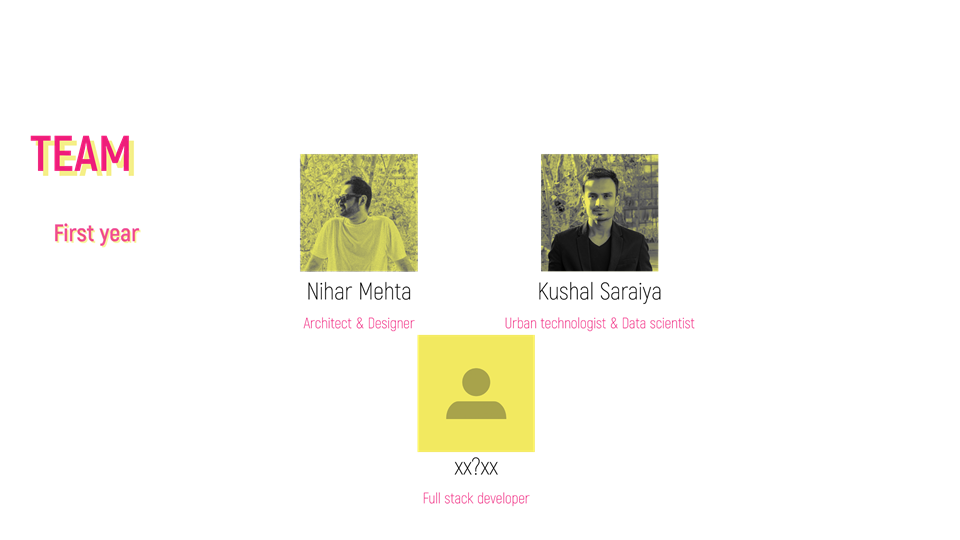
To achieve this during the first year, we would require a full stack developer as a partner who has more in-depth knowledge of the engineering platforms that we develop.
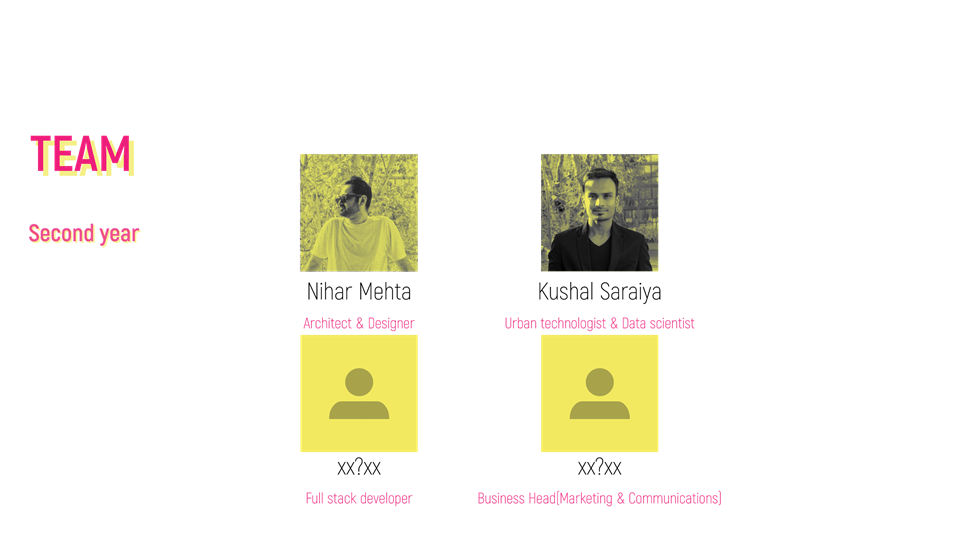
And for the subsequent users, a business head for marketing and communications.
For the first year, our financial requirements comprise monthly salaries for 3 individuals plus funds for computers, servers, and office space setup. To stay afloat, we would generate revenue through current and future clients with a revenue model of € 4000/ month/client.
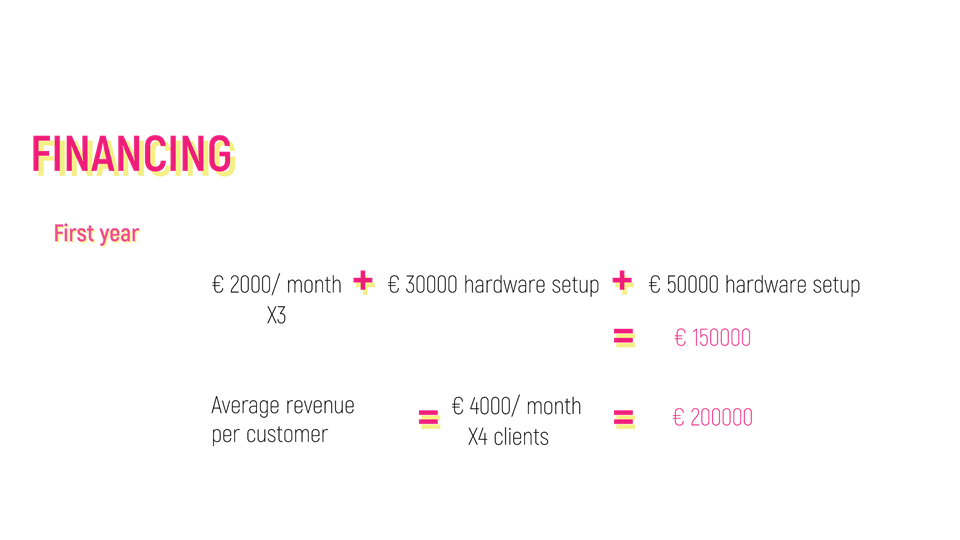

designbit is a project of IAAC, Institute for Advanced Architecture of Catalonia developed in the Master in Advanced Architecture 2020/21 by:
Student: Kushal Saraiya & Nihar Mehta
Faculty: Davide Rovera